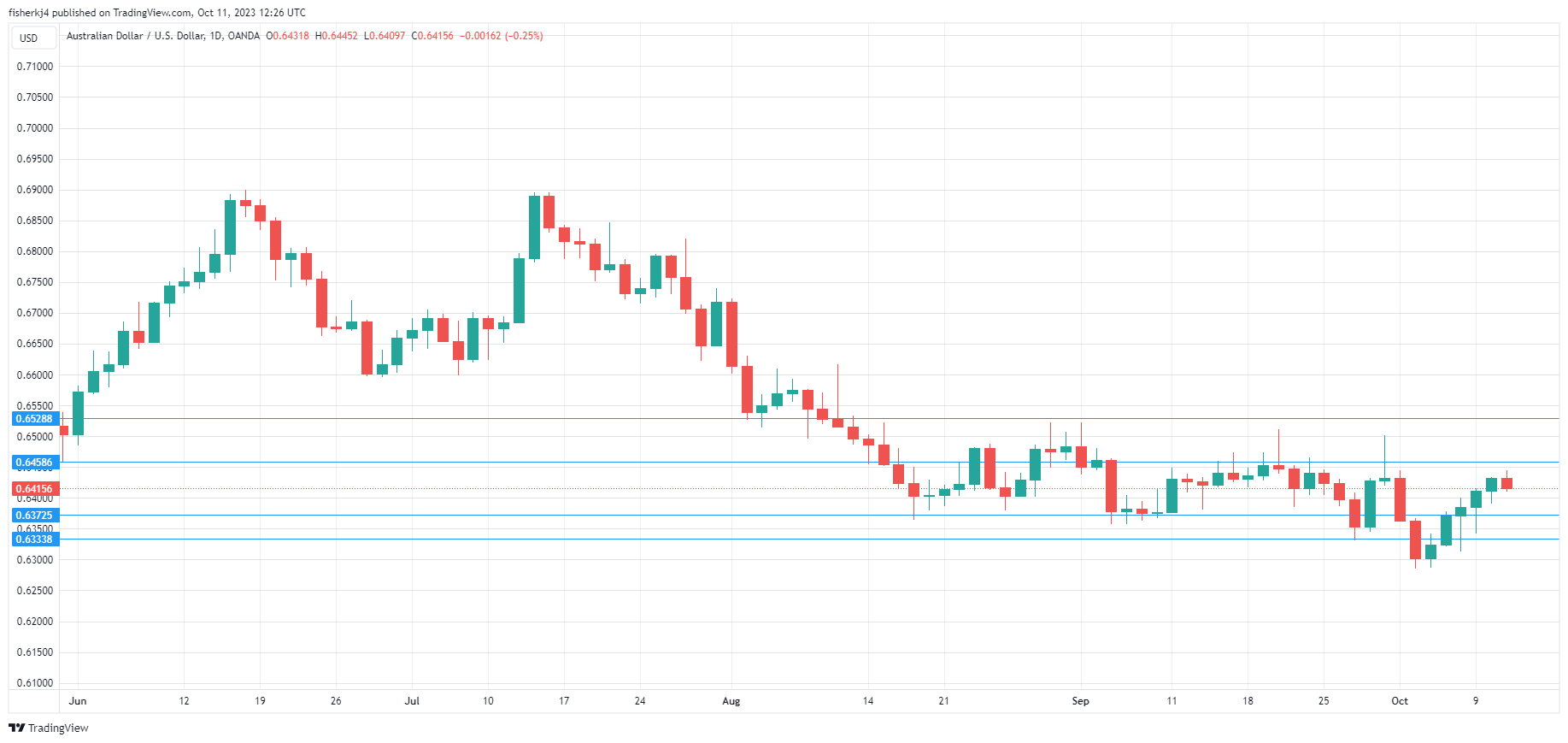- Australian inflation expectations projection to decelerate
The Australian dollar has edged lower on Wednesday. AUD/USD is trading at 0.6419, down 0.20%. The Aussie is coming off a five-day rally, rising 120 basis points during that time.
Australian Inflation Expectations Expected to Decline
Australia will release MI inflation expectations on Thursday. Inflation expectations are closely watched as they can manifest into actual inflation. The trend has been downward, with inflation expectations falling slowly over the past two months. Inflation expectations eased to 4.6% in September, its lowest level since April. Another drop is expected for October, with a consensus estimate of 4.4%.
Australia’s inflation rate has generally been on a downtrend, although CPI rose unexpectedly from 4.9% to 5.2% in August. The RBA has held rates at four consecutive meetings and the third-quarter inflation report on October 25th could be the determining factor as to whether the RBA prolongs the pause. The markets have priced in a pause at 95%.
The Federal Reserve has sounded hawkish in recent months, warning that rate hikes could continue even as inflation has been falling. That message has changed in recent days, as some Fed members have sent out a very dovish message. This is a direct result of the sharp rise in US Treasury yields, with 10-year yields hitting a 16-year high on Tuesday. The spike in yields has made borrowing costs more expensive and could act as a brake on the economy and push inflation lower, allowing the Fed to avoid further hikes.
Atlanta Fed President Raphael Bostic said on Tuesday that the Fed didn’t need to raise rates anymore in order to push inflation back to the Fed’s 2% target. Dallas Fed President Lorie Logan and San Francisco Fed President Mary Daly also stated that the increase in Treasury yields could mean less need for the Fed to raise rates in the current tightening cycle. The futures markets have priced in a rate hike before the end of the year at 26%, according to the CME FedWatch Tool.
AUD/USD Technical
- 0.6372 and 0.6338 are providing support
- There is resistance at 0.6458 and 0.6528
